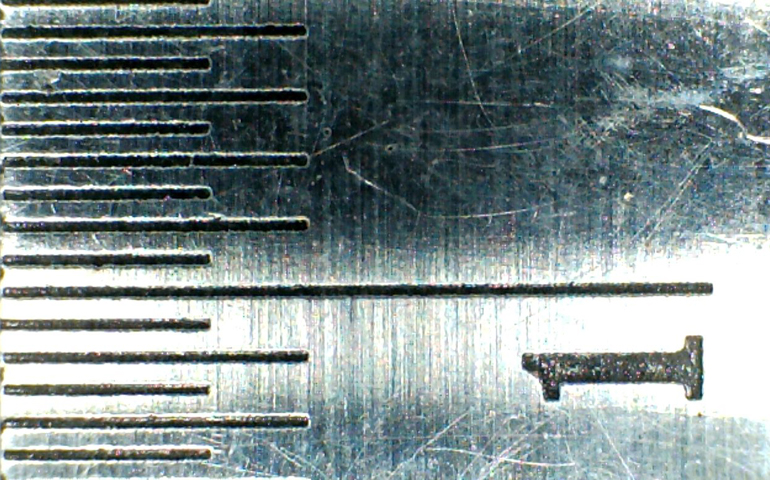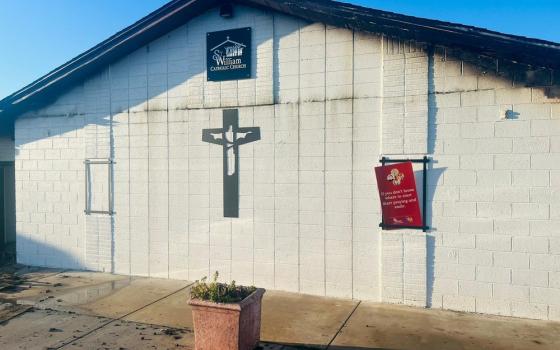
(Wikimedia Commons/Saurabh R. Patil)
The new administrator at our church, Miles, is quite concerned about our church's "data integrity." By that, I finally understand, he means our membership and giving records, as well as the records of those who are interested in us through our programs, or may have shown up once or twice to say "Hi."
Data integrity as language bothered me a lot until I knew what Miles was talking about. He was talking about measurement: How do we know who's here or was here or might be here? He was also talking about remembering.
I have always loved rulers — the ones that measure inches and feet. They also make good straight lines when I need them as a distraction to avoid working on a project. I am in love with my Fitbit fitness tracker because it drives me to more steps every day, even if I have to walk around my kitchen counter at night to meet my goal. Why would I let this tool run me around the kitchen counter? I have no idea, I only know that measurability is an art, as much as a science.
The phrase "kilowatt ours," as opposed to kilowatt hours, amuses me. It makes an environmental joke posing as theology. I also like climate activist Bill McKibben's language about "sins of emission." Both phrases perform poetry, just like lovers of data integrity do.
Thus, I was a prime suspect to really love Greenometry.
Greenometry is a new not-for-profit start-up dedicated to driving a low-carbon economy through science and data "to enable everyone to know the carbon footprint of everything." You could call it carbon footprinting 2.0.
Why would or should a female poet like me want anything to do with this matter? Because I know when I am vague, I don't reach my goals. I try to reach them but I fail.
Greenometry describes the project this way: "The role of metrics in a low-carbon society is analogous to the role of calories in a diet," that is, knowing the carbon footprint of a gallon of gas helps people interpret the climate impact of daily acts and purchases.
You could also check out Gerald Mitchell at Swich, another organization that measures not just our environmental impact but our general economic values from the vantage point of what we use. Like Greenometry, Swich is another start-up company trying to help us measure our impacts — in its case, tracking how your consumer dollars support businesses that share (or don't share) values related to the environment, health, workers, local economies and citizenship. The creative idea is currently being tested here in New York.
Or if you wanted a way to pursue a modest goal like reducing your solid waste from 32 gallons to 20 gallons per week, you could check out David Gershon's 2006 book Low Carbon Diet: A 30 Day Program to Lose 5000 Pounds. The author and co-founder of the Empowerment Institute strongly recommends we don't do all of the things on his long list of possibilities at once. We can change our light bulbs one week and join a carpool on Mondays the next. Gerson says to pick one or two things and habituate them. I like his approach because it keeps me from being overwhelmed or resistant to data integrity about my own habits.
A wise time management guru once said to me, "Pick five priorities and spend 95 percent of your time on them. If you are not spending your time on your priorities, that means you have lost your way. You have lost the law written deep inside." I prefer another management guru, who argues for the rule of three, on the grounds that even five priorities is too many at once.
No matter which guru you follow or which diet is our favorite, numbers matter.
If you don't have data integrity — personally, environmentally or organizationally — you are probably fooling around. If you do have numbers, at least you know where you might want to go tomorrow, after you have achieved the goals you set for today. Walking around a counter? Not really.
Setting goals and achieving them is a form of self- and planet respect. Unfortunately, humans need help in becoming different. Whether our goal is losing weight or understanding our parish's visitors or saving the planet, we need numerical goals.
And then we need to achieve them.
[Donna Schaper is senior minister of Judson Memorial Church in New York City.]
Editor's note: Want more stories from Eco Catholic? We can send you an email alert once a week with the latest. Just go to this page and follow directions: Email alert sign-up.








